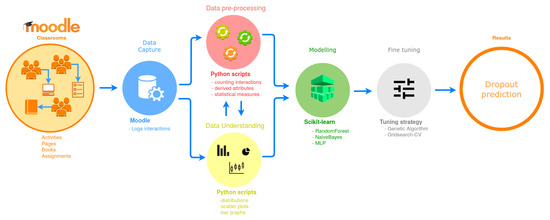Plant functional traits and types: Their relevance for a better
Por um escritor misterioso
Descrição
It is proposed here to analyse the potential and limitations of the PFTT concepts in the case of AFS in the humid tropics, notably referring to rainforest dynamics regarding succession patterns. Complex Agroforestry Systems (AFS) in the humid tropics are mixed forest-like ecosystems that often display high species diversity that makes their structure and functioning difficult to understand and simulate. Plant Functional Traits and Types (PFTT) are broadly used concepts in community and ecosystem ecology to address the responses of species to changes in the environment and/or the contribution of species to ecosystem functions. The relevance of these concepts, developed for natural ecosystems, for a better understanding of AFS is unknown but we hypothesize that they might be useful to gain a better understanding of the resilience properties of AFS and to answer the following questions: What is the role of AFS species composition in ecosystem functions? and, conversely: How do environmental changes affect that species composition, and hence AFS performance? We propose here to analyse the potential and limitations of the PFTT concepts in the case of AFS in the humid tropics, notably referring to rainforest dynamics regarding succession patterns. This analysis is based on case studies from coconut-based AFS in Melanesia and coffee-based AFS in West Africa. Plant functional traits, such as growth form, life form, phenology, and height were first used to describe these AFS. Since AFS are a result of farmers interventions, to evaluate their performance specific traits, corresponding to agronomic characteristics of species such as the production cycle, and part of the plant used, need to be considered in addition to traits considered for natural forests. (Resume d'auteur)
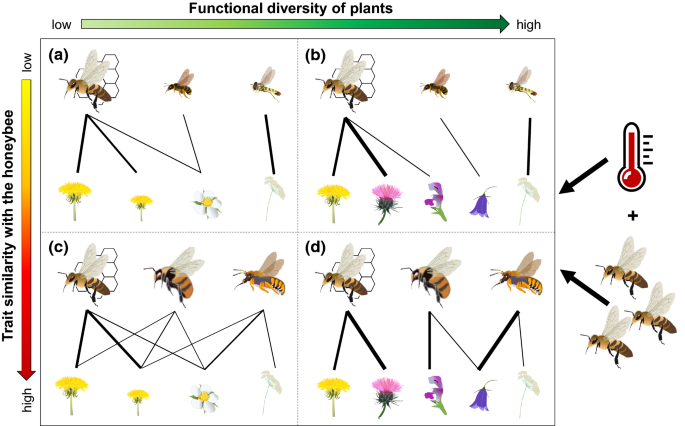
Functional traits of plants and pollinators explain resource overlap between honeybees and wild pollinators
What are functional trait-based approaches to plant ecology and why are they important? - Quora
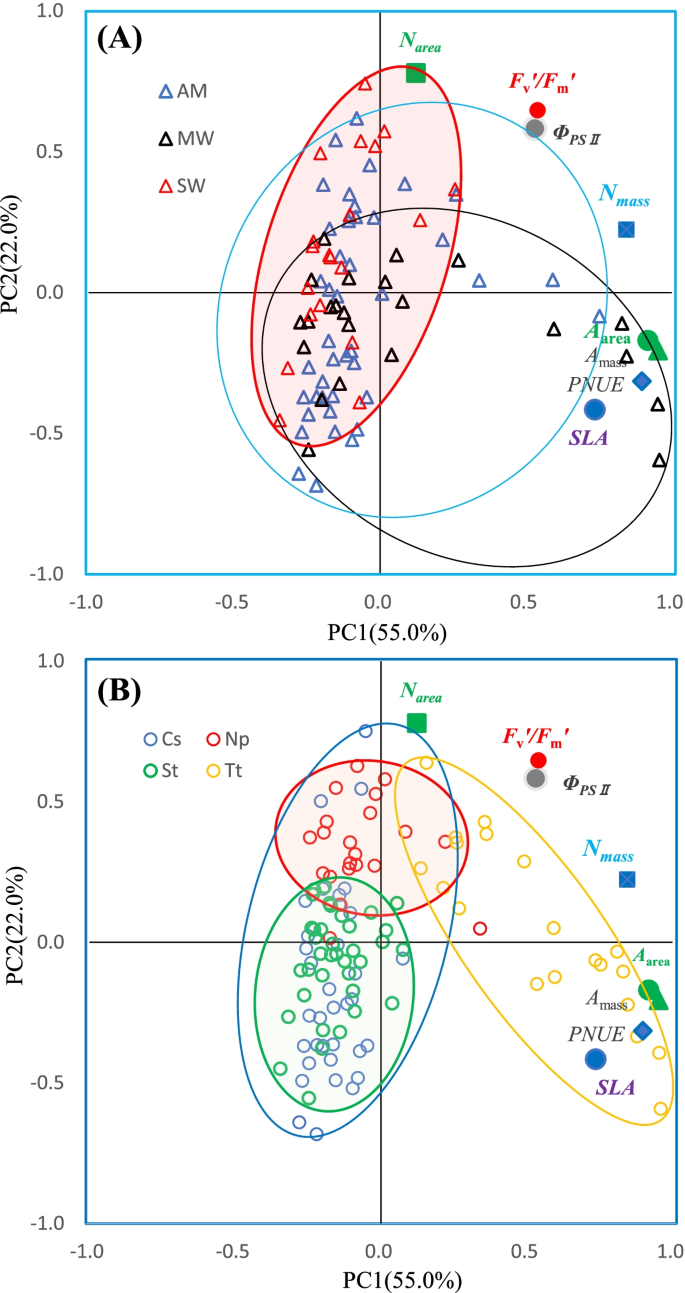
Coordination of leaf functional traits under climatic warming in an arid ecosystem, BMC Plant Biology
Using Plant Functional Traits to Explain Diversity–Productivity Relationships

How plant functional traits determine ecosystem functioning (A) and

The ecologically relevant genetics of plant–plant interactions: Trends in Plant Science
What are functional trait-based approaches to plant ecology and why are they important? - Quora

New lab paper: Unifying functional trait approaches – Macrosystems Ecology Laboratory
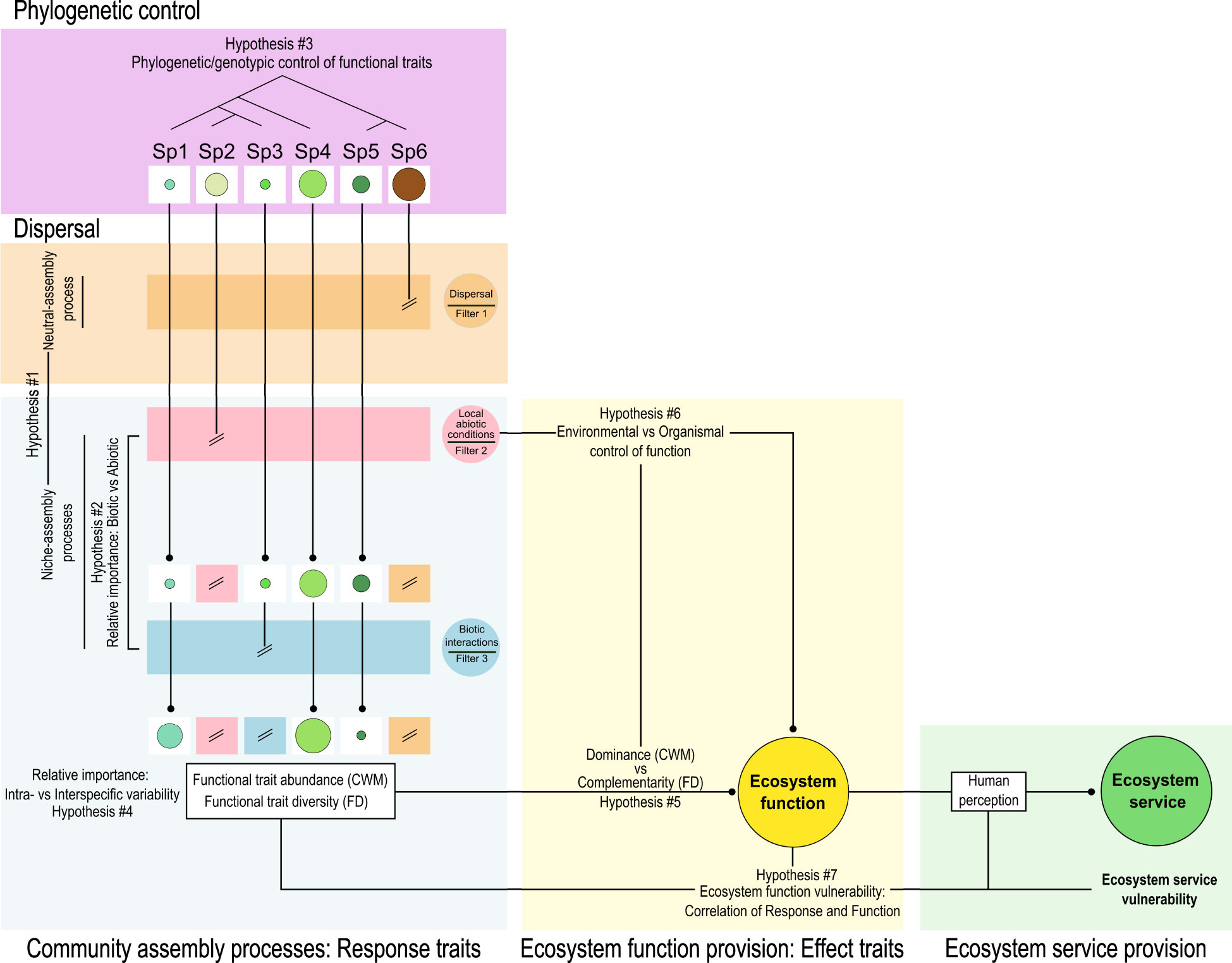
Frontiers A trait-based framework for seagrass ecology: Trends and prospects
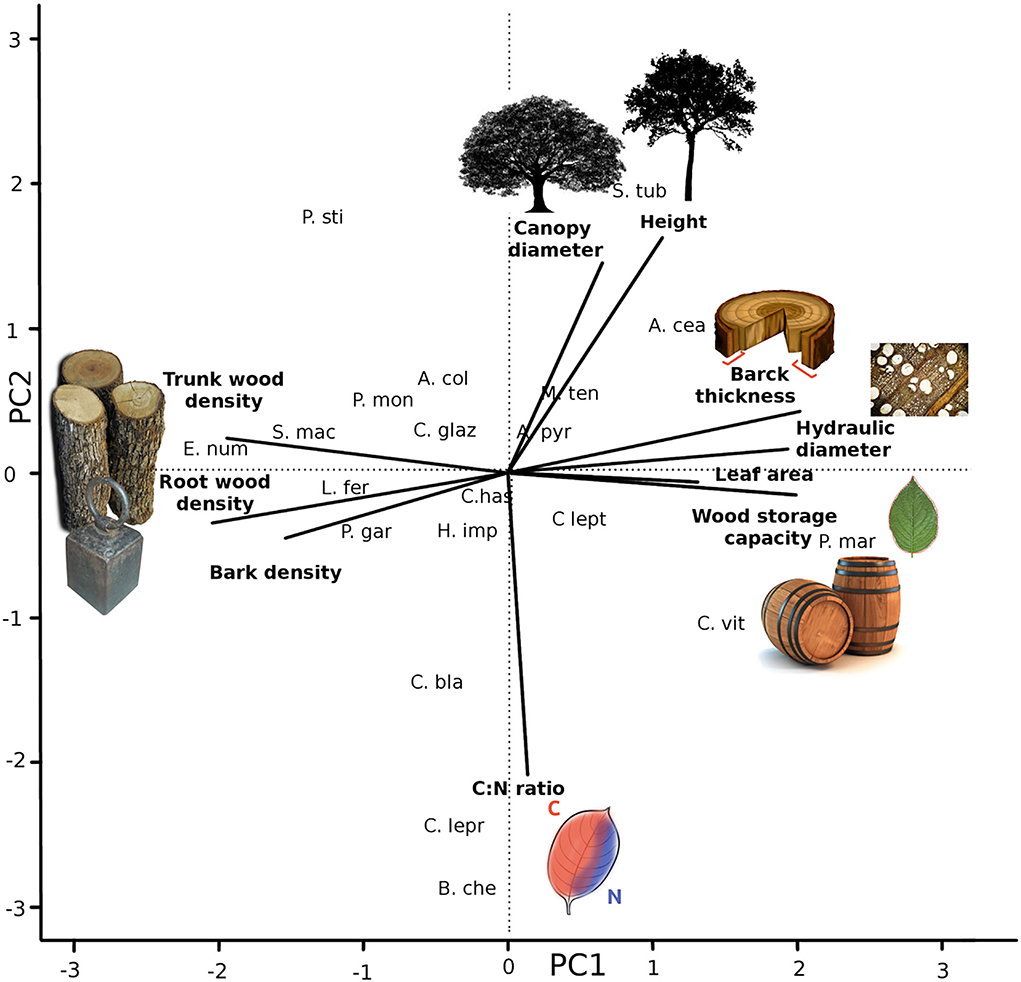
Frontiers Functional traits above and below ground allow species with distinct ecological strategies to coexist in the largest seasonally dry tropical forest in the Americas
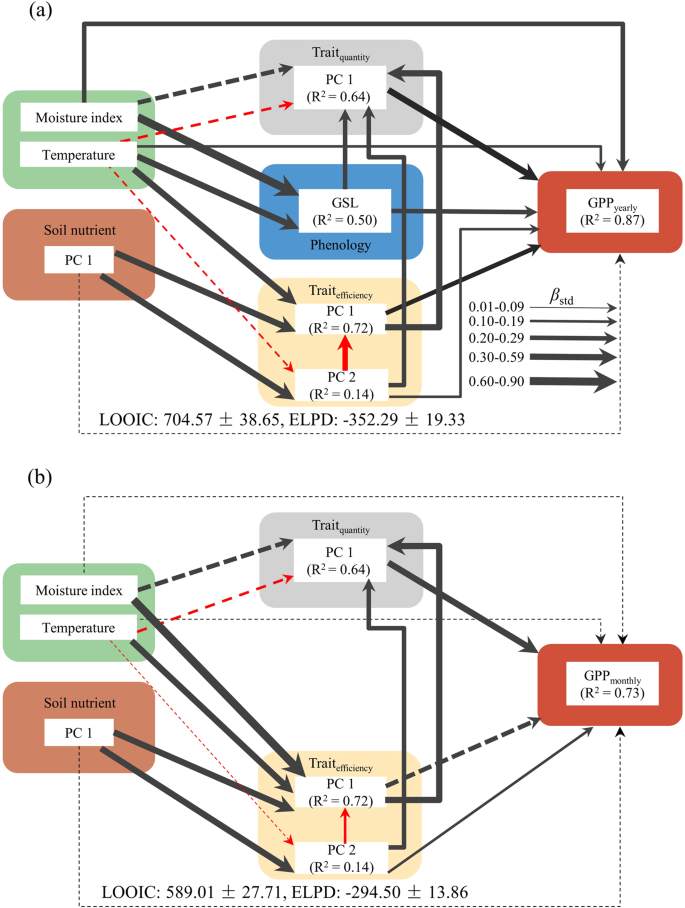
Integrating multiple plant functional traits to predict ecosystem productivity

Plant Functional Traits: Soil and Ecosystem Services: Trends in Plant Science

Microplastics Can Change Soil Properties and Affect Plant Performance
de
por adulto (o preço varia de acordo com o tamanho do grupo)

